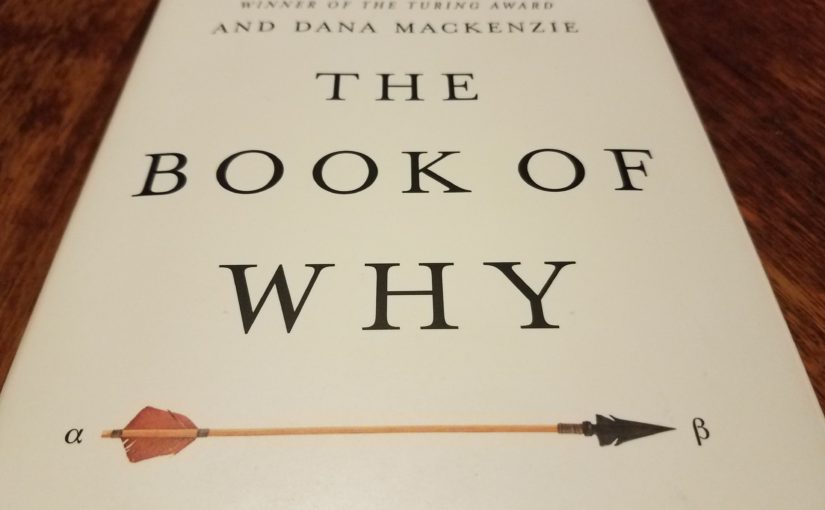The Book of Why by Judea Pearl and Dana Mackenzie isn’t for everyone, but it was the perfect read for me just now, adding color and context to the statistics course I’m taking on the side. This book wasn’t part of the class, but it helped a lot of the ideas stick, particularly Bayes’ rule!
I imagine people who liked the book Thinking, Fast and Slow, but wanted more math and science, would like The Book of Why.
Here are a handful of my favorite excerpts, along with a couple notes (most of the emphasis is my own):
"Unlike correlation and most of the other tools of mainstream statistics, causal analysis requires the user to make a subjective commitment. She must draw a causal diagram that reflects her qualitative belief -- or, better yet, the consensus belief of researchers in her field of expertise -- about the topology of the causal processes at work. She must abandon the centuries-old dogma of objectivity for objectivity's sake."
"Confounding bias occurs when a variable influences both who is selected for the treatment and the outcome of the experiment...There is now an almost universal consensus, at least among epidemiologists, philosophers, and social scientists, that (1) confounding needs and has a causal solution, and (2) causal diagrams provide a complete and systematic way of finding that solution."
"Granted that free will is (or may be) an illusion, why is it so important to us as humans to have this illusion? Why did evolution labor to endow us with this conception? Gimmick or no gimmick, should we program the next generation of computers to have this illusion? What for? What computational benefits does it entail? I think that understanding the benefits of the illusion of free will is the key to the stubbornly enigmatic problem of reconciling it with determinism. The problem will dissolve before our eyes once we endow a deterministic machine with the same benefits."
"AI researchers are therefore trying to answer two questions -- about function and simulation -- with the first driving the second. Once we understand what computational function free will serves in our lives, then we can attend to equipping machines with such functions. It becomes an engineering problem, albeit a hard one. To me, certain aspects of the functional question stand out clearly. The illusion of free will gives us the ability to speak about our intents and to subject them to rational thinking, possibly using counterfactual logic."
"I would conjecture, then, that a team of robots would play better soccer if they were programmed to communicate as if they had free will. No matter how technically proficient the individual robots are at soccer, their team's performance will improve when they can speak to each other as if they are not programmed robots but autonomous agents believing they have options."
AF: I find this last section, on the concept of free will as a communication tool, truly profound. Then a big benefit of believing in free will, for humans and AI, is that it helps us work with each other.
